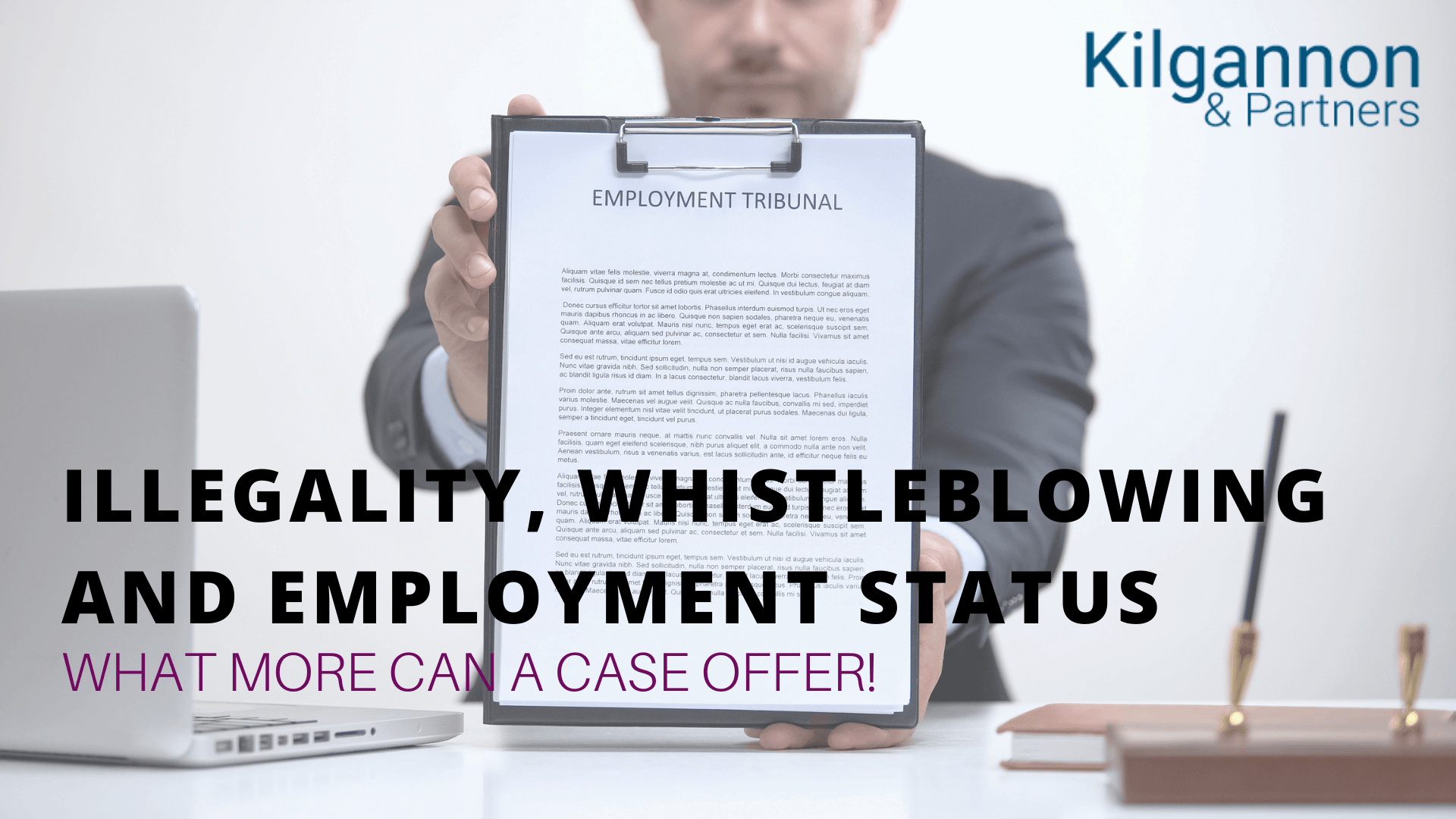Illegality, whistleblowing and employment status
Illegality, whistleblowing and employment status - what more can a case offer!

The Court of Appeal has found that an illegal contract may not prevent claims of unfair and wrongful dismissal.
While the case is of interest because “illegality” is not a common defence for employers, the context of this decision is relevant as it relates to someone who was incorrectly treated as self-employed when, in fact, the Claimant was an employee.
The Judgement emphasises the impact of incorrectly categorising someone’s employment status.
Facts
On 23rd March 2007, the Claimant, Ms Robinson, was employed by the Respondent to manage his properties and look after his children.
The Claimant was paid £34,000, which in June 2009 increased to £37,000. This was treated as a ‘management fee’ by the Respondent and the letter of appointment stated the Claimant would pay her own tax/NIC.
In July 2014, the Claimant asserted that she was to be paid net and that she had not paid any tax/NIC. A dispute ensued regarding who was responsible, and the Claimant later claimed some of her correspondence amounted to protected disclosures under the whistleblowing legislation.
The Respondent began deducting tax/NIC, but held this in a separate account to account to HMRC if needed. The dispute did not resolve, and the Claimant was summarily dismissed on 19th May 2017.
The Claimant pursued claims for automatic unfair dismissal and wrongful dismissal.
Employment Tribunal (ET)
The Respondent was successful at Tribunal, as the ET found the contract has been performed illegally. This was despite the ET also finding the Claimant had made protected disclosures and that the dismissal was wrongful and unfair.
In general terms, if a contract is tainted with illegality (such as non-payment of tax/NIC) it can mean the Courts are prevented from hearing/deciding a case and this had the effect of denying any award for the Claimant.
Appeal
The illegality point was appealed to the Employment Appeal Tribunal (EAT). The EAT held that where the employer was aware of the non-payment and took steps to address it, it should not prevent the Claimant from claiming unfair and wrongful dismissal.
The employer appealed to the Court of Appeal (CoA) who, having reviewed the case law surrounding illegality, looking specifically at the harm it would do to the integrity of the legal system if illegal claims were allowed.
The CoA found that the EAT’s decision was sound, and the employer’s appeal was dismissed.
Summary
The case is a very helpful reminder and summary of the case law surrounding illegality and the impact it can have on an employee’s ability to pursue a claim.
Of equal importance is the context, particularly, considering the recent legal developments with the Uber case and IR35. Here, the employee was incorrectly categorised as self-employed and paid gross.
This later caused numerous issues for the employer. During the dispute while she was employed, the employee:
- asserted that her pay (£34,000, then £37,000) was her net pay, not gross. If true, it could mean a substantial liability accruing year on year for the employer; and
- was able to establish that her concerns amount to protected disclosures/whistleblowing meaning she could claim automatic unfair dismissal with no cap.
Therefore, this case is also a timely reminder that correctly categorising an employee’s status is key. Get this wrong and a whole manner of costly issues will likely follow.
If you would like any further information or want to discuss any of these issues then please contact the writer, Matthew Kilgannon, via mk@kilgannonlaw.co.uk or on 01483 388 900.
Kilgannon & Partners LLP is a specialist employment law firm where our experienced employment law partners offer practical, prompt and professional employment law and HR advice.
16th June 2021. © Kilgannon & Partners LLP











